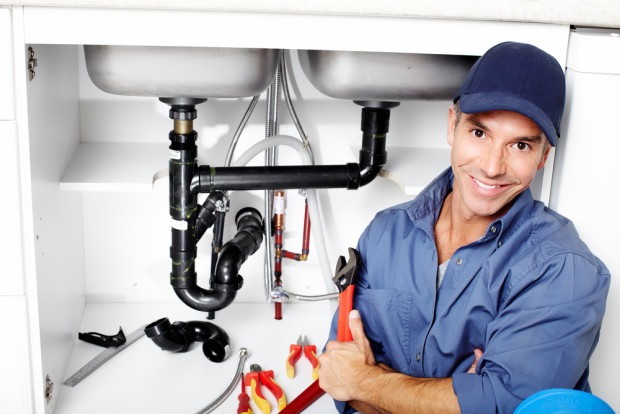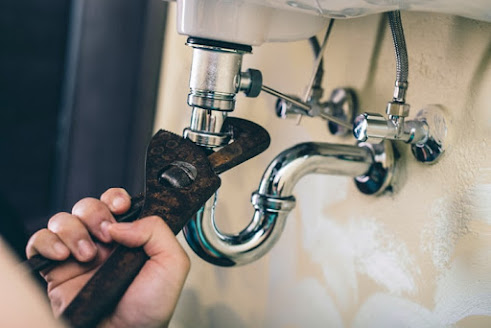Identifying As Well As Repairing Plumbing Sounds In Your House
Identifying As Well As Repairing Plumbing Sounds In Your House
Blog Article
Just how do you really feel in regards to Diagnose Unwanted Plumbing Noises?

To detect noisy plumbing, it is essential to identify first whether the undesirable audios happen on the system's inlet side-in other words, when water is turned on-or on the drainpipe side. Sounds on the inlet side have varied reasons: extreme water pressure, worn shutoff as well as faucet parts, poorly linked pumps or other appliances, inaccurately put pipe bolts, and also plumbing runs including too many limited bends or various other restrictions. Sounds on the drainpipe side typically stem from inadequate place or, as with some inlet side sound, a design containing limited bends.
Hissing
Hissing noise that occurs when a tap is opened somewhat generally signals too much water pressure. Consult your neighborhood public utility if you suspect this trouble; it will have the ability to inform you the water pressure in your location and can mount a pressurereducing valve on the incoming water system pipe if essential.
Other Inlet Side Noises
Squeaking, squeaking, damaging, snapping, and also tapping usually are brought on by the expansion or tightening of pipes, usually copper ones supplying warm water. The sounds take place as the pipes slide versus loose bolts or strike nearby residence framing. You can commonly pinpoint the area of the problem if the pipelines are exposed; just adhere to the noise when the pipelines are making noise. More than likely you will find a loosened pipe wall mount or an area where pipelines exist so near to flooring joists or other framing items that they clatter versus them. Connecting foam pipeline insulation around the pipes at the point of get in touch with need to treat the problem. Make sure bands and wall mounts are secure as well as supply adequate support. Where feasible, pipe fasteners must be attached to enormous architectural aspects such as structure walls rather than to mounting; doing so lessens the transmission of vibrations from plumbing to surface areas that can intensify and transfer them. If connecting bolts to framing is inevitable, cover pipelines with insulation or various other resilient material where they call bolts, and sandwich the ends of new bolts in between rubber washers when installing them.
Fixing plumbing runs that experience flow-restricting limited or numerous bends is a last option that must be embarked on just after consulting an experienced plumbing specialist. Regrettably, this scenario is rather common in older houses that may not have actually been developed with interior plumbing or that have seen several remodels, particularly by novices.
Babbling or Screeching
Intense chattering or shrieking that happens when a shutoff or faucet is switched on, which generally disappears when the fitting is opened fully, signals loose or faulty inner components. The remedy is to replace the valve or faucet with a new one.
Pumps as well as home appliances such as cleaning makers and also dish washers can transfer motor noise to pipes if they are improperly connected. Link such products to plumbing with plastic or rubber hoses-never rigid pipe-to isolate them.
Drainpipe Noise
On the drainpipe side of plumbing, the principal objectives are to get rid of surfaces that can be struck by falling or rushing water and to shield pipelines to consist of inevitable noises.
In new construction, bath tubs, shower stalls, commodes, and also wallmounted sinks as well as basins should be set on or against resistant underlayments to minimize the transmission of noise with them. Water-saving toilets and also taps are much less noisy than conventional versions; mount them rather than older types even if codes in your area still allow utilizing older fixtures.
Drainpipes that do not run up and down to the cellar or that branch into straight pipeline runs supported at floor joists or various other mounting present specifically frustrating noise problems. Such pipelines are big enough to emit significant resonance; they additionally bring considerable amounts of water, that makes the circumstance worse. In brand-new building, specify cast-iron dirt pipes (the huge pipelines that drain commodes) if you can afford them. Their massiveness has much of the sound made by water going through them. Also, stay clear of directing drainpipes in wall surfaces shared with rooms as well as rooms where individuals gather. Wall surfaces including drains ought to be soundproofed as was defined previously, using dual panels of sound-insulating fiber board and wallboard. Pipelines themselves can be covered with special fiberglass insulation created the function; such pipelines have an invulnerable plastic skin (in some cases containing lead). Results are not constantly acceptable.
Thudding
Thudding sound, typically accompanied by shivering pipes, when a tap or appliance shutoff is turned off is a problem called water hammer. The noise as well as resonance are caused by the resounding wave of stress in the water, which all of a sudden has no area to go. In some cases opening up a shutoff that discharges water promptly into an area of piping having a limitation, joint, or tee fitting can create the very same condition.
Water hammer can normally be healed by setting up installations called air chambers or shock absorbers in the plumbing to which the problem valves or taps are attached. These devices enable the shock wave developed by the halted flow of water to dissipate airborne they have, which (unlike water) is compressible.
Older plumbing systems may have short upright areas of capped pipe behind walls on tap competes the same function; these can at some point loaded with water, decreasing or ruining their performance. The cure is to drain the water system entirely by shutting down the main supply of water shutoff and also opening up all faucets. Then open the primary supply shutoff and also close the faucets one by one, beginning with the faucet nearest the shutoff and also finishing with the one farthest away.
Pipe Down! What to Do About Noisy Water Pipes
Banging
Does it sound like someone's hitting your pipes with a hammer every time you run water? The issue could be a phenomenon called water hammer, which happens when a water valve closes suddenly. You'll often hear it when your washing machine stops filling, for example. The momentum and pressure from the water flowing toward the valve create the shockwave that causes the banging noise when the valve closes suddenly. It might not seem like a big deal, but water hammer can cause damage to your pipes, including leaks and joint damage.
One way to ease water hammer is by installing water hammer arrestors. Your plumber can install them near major valves to help cushion the shock of the water when it suddenly stops or changes direction. You might also need to reduce the water pressure coming into your home with the pressure-reducing valve.
Gurgling
Gurgling sounds typically come from drainpipes. This sound happens when the water can't drain properly, usually when there's a clog in the water pipes. Drain clogs often happen due to hair, grease, soap scum or objects that fall down the drain. They can happen suddenly or build up slowly over time.
You can sometimes clear a clogged drainpipe with a plunger to help force the clog through the pipe. A plumbing snake or an auger can also help break up tough clogs. A common plumbing myth is that chemical drain cleaners are safe and effective, but they often don't work and contain harsh chemicals that can hurt you and your plumbing. If you can't remove the clog with a plunger or snake, it's best to call a plumber to help.
Rattling
Water travels through your pipes with lots of pressure, so the pipes are bound to move a little. Pipes should be secured well to keep them from moving too much when water runs through them. If they're not properly fastened or the fasteners come loose, you might hear them rattling when you run water.
Resecuring the pipes can cut down on the rattling noise and prevent damage to the joints of the water pipes. However, many pipes run behind walls where you can't easily access them. A plumber can help determine if loose fasteners are the cause of the rattling and resecure them if necessary.
Humming
If your pipes sound like they're humming, it's likely a water pressure issue. When the water pressure is high, it can cause the water pipes to vibrate and create a humming sound. High water pressure is more common if you have a well for your water, but it can happen with municipal water as well. High water pressure can damage your plumbing and cause leaks.
If you have a well, check the pressure to ensure it's below 55 pounds per square inch. A plumber can test the pressure for you and help adjust the issue if you're not sure how to do it yourself. If you're connected to the municipal water source, your home likely has a pressure-reducing valve near where the water enters your home. You can adjust the screw in the valve to decrease the pressure, but be careful not to lower it too much.
Squeaking
Squeaking or squealing is another common sound you'll hear in your water pipes. This often happens if small components within the plumbing, such as washers or aerators, become loose, dirty or damaged. When this is the cause, the squeaking sound is usually confined to a certain fixture or area of plumbing. Replaced or repairing the part should solve the noise.
If you can hear the squealing sound everywhere in your home, it could be an issue with water pressure. Buildup in the pipes narrows the space for the water, which can cause squealing as the water tries to squeeze through the pipes. Wear and tear on the plumbing system can also cause whistling or squeaking. These situations typically require a professional plumber to diagnose and repair.
https://www.homeserve.com/en-us/blog/home-improvement/water-pipes-making-noise/

I ran across that content about Why Do My Plumbing Pipes Make A Knocking Noise while doing a lookup on the web. Sharing is nice. Helping others is fun. Thank you for taking the time to read it.
Schedule Your Job Now Report this page